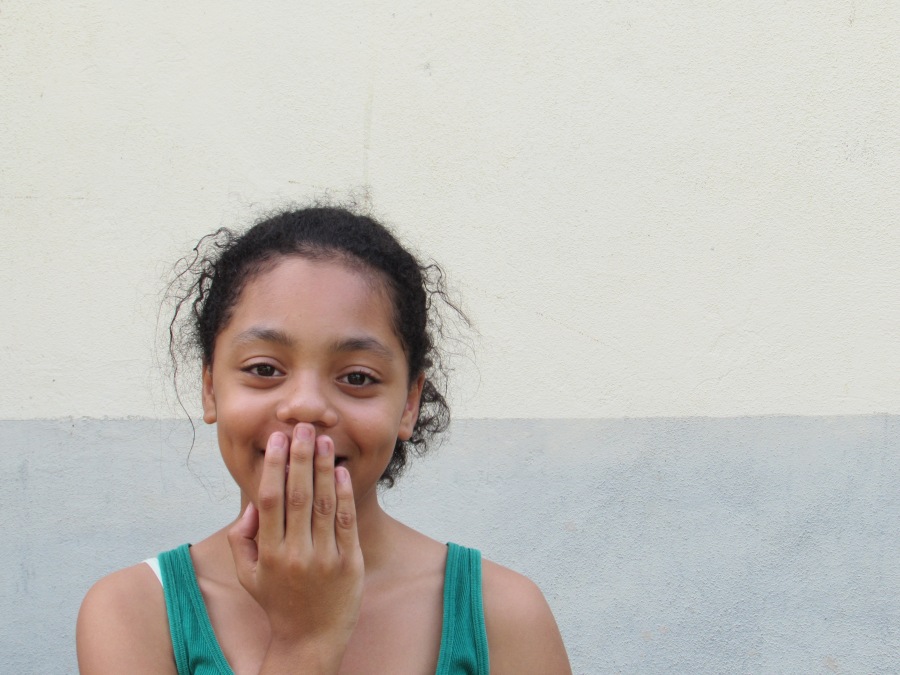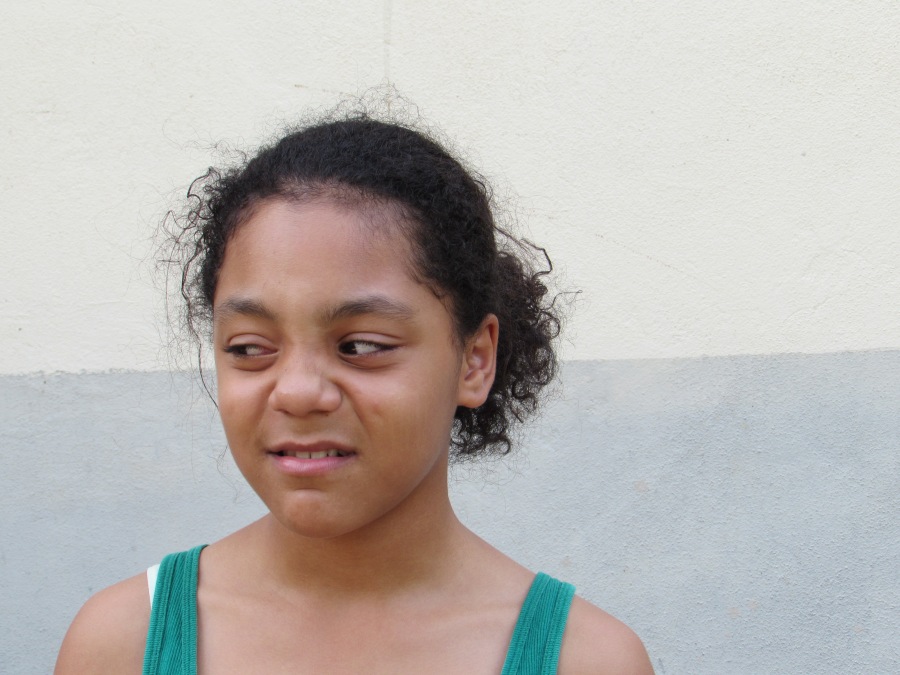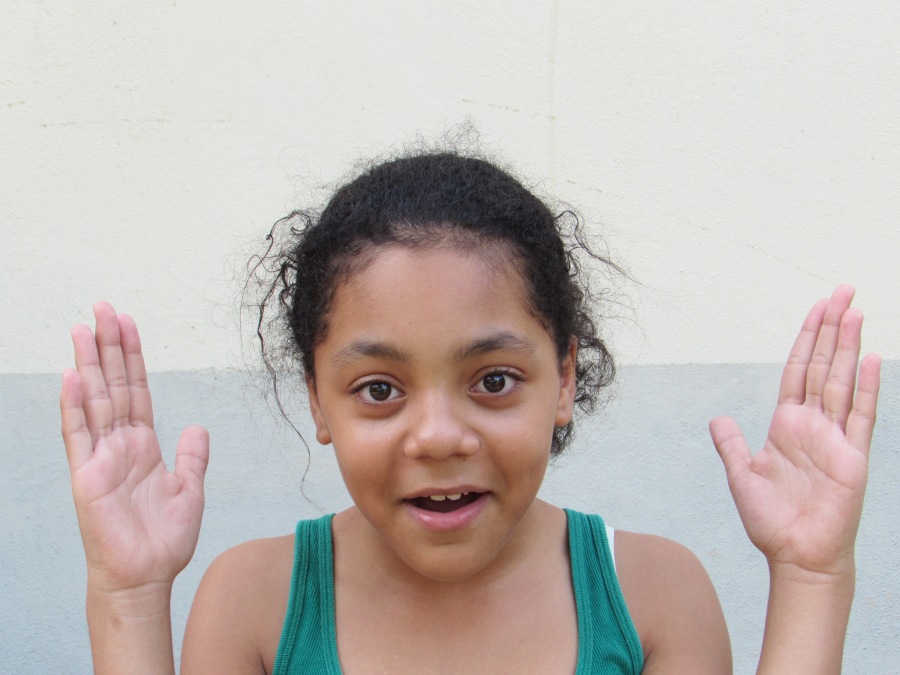Have you ever had a conversation that has nothing to do with the words being spoken? Did you know that a simple, “Long time mi nuh see yuh!” could mean “Did you go on vacation?,” “I miss you,” “What is new in your life?,” “Why the heck haven’t you responded to my texts” and so much more? It’s true – in Jamaica it’s often not what you’ve said, but how you’ve said it or what you’ve refrained from saying that counts.
I’ve written a lot about Jamaicans telling it like it is, and while people here may be quick to comment about your appearance, it is often what is not said that really counts. Here are some examples of non-verbal communication that I’ve found interesting:
Cut im yie
To cut yuh yie pon somebody is like a loaded glare. It’s a declaration that yuh nuh bizness wit dem, that you’re upset, annoyed or disgusted with someone due to their behavior.
If someone cuts their eyes after you, you know that you’ve probably got some apologies to make or some sp’lanin to do!
Kiss mi teet
This noise is made by sucking on your teeth and usually ends with pursing your lips in frustration. It is meant to express that you cyaa badda wid dat, that something has annoyed you. Jamaicans learn from a young age when it is and isn’t appropriate fi dem fi kiss dem teet (kiss their teeth). For example, children know never to kiss dem teet aftah dem teachuh.
As a PCV in Jamaica, you earn major bragging rights and street cred if you learn how to kiss yuh teet convincingly. Bonus points if you use the text shorthand, “KMT.”
Yuh get fat!
Ok, so obviously if someone tells you that you’re getting fat, they’ve used words. But it’s what they imply with those words that I’m intrigued by. Depending on who says it, their tone and their facial expression, this could mean anything from “You’re looking so healthy! Jamaica’s been good to you!” to “Why are you wearing such tight clothes?” to “I’m trying to hurt your feelings” (rarely) to “You must be eating some really nice food.” Altogether very confusing for thin-obsessed Americans, but when you take it for what a Jamaican means, it can be quite a nice compliment.
Distinguishing the implication of this comment is a painstaking topic of conversation at nearly every Peace Corps gathering. Once, I was told that I am getting fat in the same day that someone shouted “Yuh need fi get some more meat pon dem deh chicken legs!” while I was out for a run. Sometimes, you just have to laugh.
Ah suh yuh move yuh body
Body language is huge here. From walking on the street to having a formal conversation, Jamaicans know that your body language matters. Take for example a woman walking past a group of familiar men: the way in which she carries herself as she continues to walk by (proudly, scoffing, quickly, slowly, shoulders hunched, etc.) says a lot about her attitude towards the men in the group.
Learning to strut the Jamaican way (it’s generally closer to a saunter than my American dash-to-destination) is an art I’m still perfecting.
Read between the lines
Often times, what’s left unsaid is more important than what’s actually said. In business or school settings, I find that Jamaicans tend to be more formal and polite than what I’ve experienced in America, and sometimes this formality keeps people from saying what they really mean.
For example, once I shared a crazy project idea with my counterpart and his response was “It could work.” Now by him saying that, I had to pay attention to his facial expression, intonation and body language to interpret if he meant “Yes! That sounds great and I think we should try it!” or if he meant “That project would be a waste of time because of x, y, and z, but I don’t want to hurt your feelings because you seem really excited.”
Learning about a new culture or language is so much more than understanding how to translate words. As much as I’ve learned over this last year of service, I recognize just how much I still have yet to learn. With each day comes greater understanding.
That’s what I love about Peace Corps; the learning never stops if you don’t want it to. I haven’t met anyone in this world who doesn’t know a likkle sinting about Jamaica, but I feel so honored to be learning about real Jamaicans by living with them, working with them and befriending them. This country is so much more than dreadlocks and reggae music.
A big thank you to my lovely host sistah Ari for being my model!






Reblogged this on Concierge Librarian.
Thanks! Glad you liked it!
I like this it had me cracking up.
Glad to hear that you enjoyed it Kay-Ann! Trying to capture this element of culture…
Hey! Would you be alright with me using this in a presentation? If so, would I use some of the pictures?
Hi Christina,
Can you tell me a little more about the audience for your presentation? I love to share my work, but I would like a little more information from you before agreeing.
Yeah no problem! It’s for an Intercultural Communications class at Minnesota State University Moorhead. I will be giving a presentation along with a few of my classmates about Jamaica and everything that goes into it. I will be talking about their Communication styles such as the way they speak, their nonverbals, and the like. I will also be making your ginger coconut macroons to share if you don’t mind 🙂 I’ll bring up the recipe and give you full credit.
Sorry for the late response.
Hi Christina, wow that sounds awesome! I would love if you would share some photos with me, if possible. This is exactly why I blog, to help share culture. Feel free to email me: Dominique.gebru@gmail.com